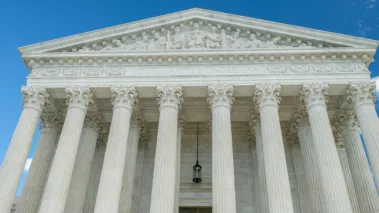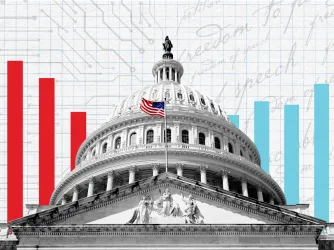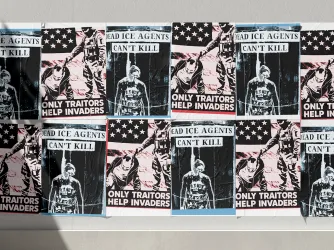Table of Contents
Supreme Court won’t review flawed, damaging ruling on grad student speech

On April 3, the Supreme Court of the United States declined to hear Keefe v. Adams, a case with profound implications for free speech in higher education. By rejecting Craig Keefe’s request to overturn the ruling, the high court leaves intact a misguided decision from the United States Court of Appeals for the Eighth Circuit that substantially impairs graduate students’ First Amendment rights.
Background
Keefe endured a long and winding road to the Supreme Court after being expelled from Minnesota’s Central Lakes College’s nursing program in 2012. Keefe was dropped from the program without a formal hearing for violating its Nursing Program Student Handbook, which incorporated the professional code of ethics of the American Nurses Association. As discussed by my colleague Susan Kruth, Keefe
posted some comments on Facebook that expressed negative feelings towards his classmates and included profanity. All of his comments fell far outside the narrowly defined categories of speech unprotected by the First Amendment, such as “true threats.” Nevertheless, the public institution expelled Keefe “as a consequence of behavior unbecoming of the profession and transgression of professional boundaries.”
Despite being a graduate student rather than a full-fledged nurse, Keefe was subjected to the handbook’s “unbecoming of the profession” standard, which administrators claimed his Facebook posts violated.
Lawsuit and appeal
In 2013, Keefe sued CLC for violating his First Amendment and due process rights, arguing that his online, off-campus speech was fully protected by the First Amendment and that he was not given notice of what rule he was accused of breaking, any opportunity to defend himself, or even an informal hearing prior to getting expelled.
A federal district court dismissed his claims in 2014, but Keefe appealed to the Eighth Circuit, where FIRE and the Alliance Defending Freedom submitted an amici curiae (“friends of the court”) brief criticizing CLC’s unconstitutional actions. We wrote:
The College attempts to justify its disregard for its legal obligations under the Bill of Rights by invoking a vague, subjective “professional standard.” But like the overly broad and vague college speech codes struck down by federal courts across the country over the past twenty-five years, the College’s purported justification for regulating and punishing protected student expression fails to pass First Amendment scrutiny. Public institutions may not require students to conform to professional conduct codes that violate the First Amendment. Nor may they interpret professional conduct codes to permit punishment of students for speech otherwise protected by the First Amendment.
We also highlighted the dire consequences of this decision if upheld by the appellate court:
If allowed to stand, the lower court’s blithe acceptance of the College’s censorship will establish a dangerous precedent that will be seized upon by college administrators to censor a virtually limitless range of student expression, both on and offline, on- and off-campus. [. . .] Punishment of off-campus student speech, which the district court sanctioned here, opens the door to far more ominous applications and teaches students the wrong lesson about their First Amendment rights in our modern liberal democracy.
Despite our contestations, the Eighth Circuit in 2016 upheld the lower court in a flawed decision ratifying CLC’s unconstitutional policies and treatment of Keefe. The Eighth Circuit saw no issue with public colleges punishing students with speech codes masquerading as professional codes of ethics, which it held “are a legitimate part of a professional school’s curriculum that do not, at least on their face, run afoul of the First Amendment.”
The court also offered a perplexing rationale for denying Keefe’s due process claims, holding due process was satisfied because CLC “afforded him a pre-removal, informal, face-to-face hearing that included an opportunity to respond.” This is despite CLC’s failure to inform Keefe in a timely manner of the purpose of this so-called hearing, the specific rules he was accused of violating, or the evidence against him. Such blatant due process violations caused one judge to write a separate opinion chastising CLC for not giving Keefe adequate notice before expelling him.
The Supreme Court denial and its consequences
Keefe appealed the Eighth Circuit’s decision to the Supreme Court earlier this year, again arguing that the First Amendment prohibits public colleges from expelling students for online, off-campus Facebook posts consisting entirely of constitutionally protected speech.
In an amici brief jointly filed with the Court by the Cato Institute, the Student Press Law Center, the National Coalition Against Censorship, and the Electronic Frontier Foundation, these organizations described how this decision can be used by public colleges to justify punishing graduate students for exercising their First Amendment right to challenge norms of their prospective professions:
The decision … authorizes colleges to regulate their students’ speech any time, any place, and on any subject, so long as the college can later justify that regulation by referring to a vague professional conduct code. … A medical school administrator might conclude that a student who supports mercy killing (indeed, considers it a moral imperative) is violating professional norms. Or a business school administrator might conclude that a student who condemns the free-market system is likely to betray the interests of stockholders, or to misunderstand economics. A law school administrator might conclude that a student who argues that the attorney-client privilege is immoral might violate professional norms.
The Supreme Court’s denial of Keefe’s request leaves intact a ruling enabling the widespread censorship of students in professional-level programs.
Frank LoMonte, the Student Press Law Center’s former executive director, called the Eighth Circuit’s ruling “extreme and outrageous” for allowing colleges to “punish ‘unprofessional’ speech even without showing that it disrupted the operations of the college one bit.”
LoMonte criticized the court’s shaky logic, observing that “[e]ven a middle-school student is entitled to First Amendment protection unless her speech substantially disrupts school operations.”
“[T]he Eighth Circuit’s misguided decision has left college students with lesser free-speech protections than 12-year-olds,” LoMonte wrote.
Although the Supreme Court only hears a few cases each term, we at FIRE are disappointed the Court did not take this opportunity to overrule this faulty and damaging decision.
However, one adverse decision will not deter FIRE from vigorously defending the free speech rights of graduate students, nor should it deter graduate students from challenging orthodoxy in their respective fields. Indeed, such decisions embolden us to fight that much harder for students’ rights and free speech both inside and outside the courthouse.
Recent Articles
Get the latest free speech news and analysis from FIRE.

FIRE POLL: Americans overwhelmingly want free speech protected in AI regulation

You talkin’ to me? New York City official wants to turn yellow cabs into speech police.

Two Universities. Two Posters. One First Amendment Problem.
